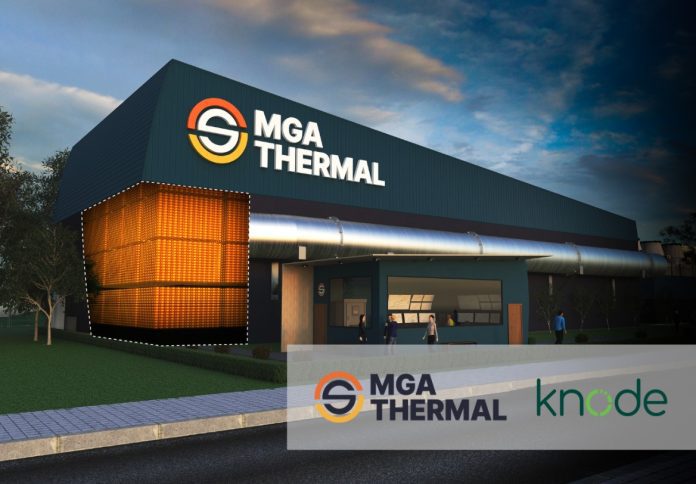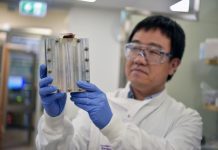
MGA Thermal and Knode have announced a major step forward in advancing Australia’s largest industrial-scale thermal energy storage (TES) project, marking progress toward manufacturing a scalable clean energy solution for industrial heat applications in Western Australia.
The 180 megawatt-hour project, developed in collaboration with global mining and energy company Tronox, professional services firm GHD, and another global mining company, has completed its pre-feasibility phase.
It is designed to deliver 20 tonnes per hour of steam to an industrial site and will be connected to the South West Interconnected System (SWIS), contributing to load shifting and broader network benefits.
The project aims to provide an economically competitive alternative to fossil fuel technologies through MGA Thermal’s TES system, which stores intermittent renewable electricity and delivers stable, dispatchable heat for industrial processes.
According to MGA Thermal, this innovation is a key enabler in the transition to low-carbon manufacturing, particularly in sectors where high-temperature heat is critical.
“Commercialising and scaling new technologies is challenging, and we’re adopting an innovative approach that engages multiple industrial stakeholders upfront to co-develop this industry-defining asset,” said Chris Nelson, CEO of Knode. “By derisking the technology and business case at scale, the project has the potential to accelerate rollout for these stakeholders across their facilities globally.”
Industries such as mineral processing, chemical production, and materials manufacturing –which rely heavily on continuous, high-grade process heat – have historically faced difficulties adopting renewable energy due to its intermittent nature.
MGA Thermal’s TES technology is positioned as a firming solution that addresses this challenge, offering a continuous energy supply powered by renewable sources.
“Knode and MGA Thermal are pioneering Australia’s largest industrial-scale thermal energy storage project that represents a genuine breakthrough in industrial decarbonisation,” said Mark Croudace, CEO of MGA Thermal.
“This project not only validates the commercial viability of MGA Thermal’s technology at scale, but also demonstrates its applicability to high-temperature industrial heat processes, a critical need that few other renewable technologies can effectively address.”
The project’s progression builds on MGA Thermal’s 5 MWh commercial-scale demonstration project and signals strong industry interest in applying thermal storage for sustainable manufacturing.
The TES system offers a pathway to reduce emissions and energy costs while supporting the long-term competitiveness of carbon-intensive industries.
With the pre-feasibility phase complete, the project will now move into the Front-End Engineering Design (FEED) phase, with construction slated to begin in 2026 and operations expected to commence by late 2027.

















